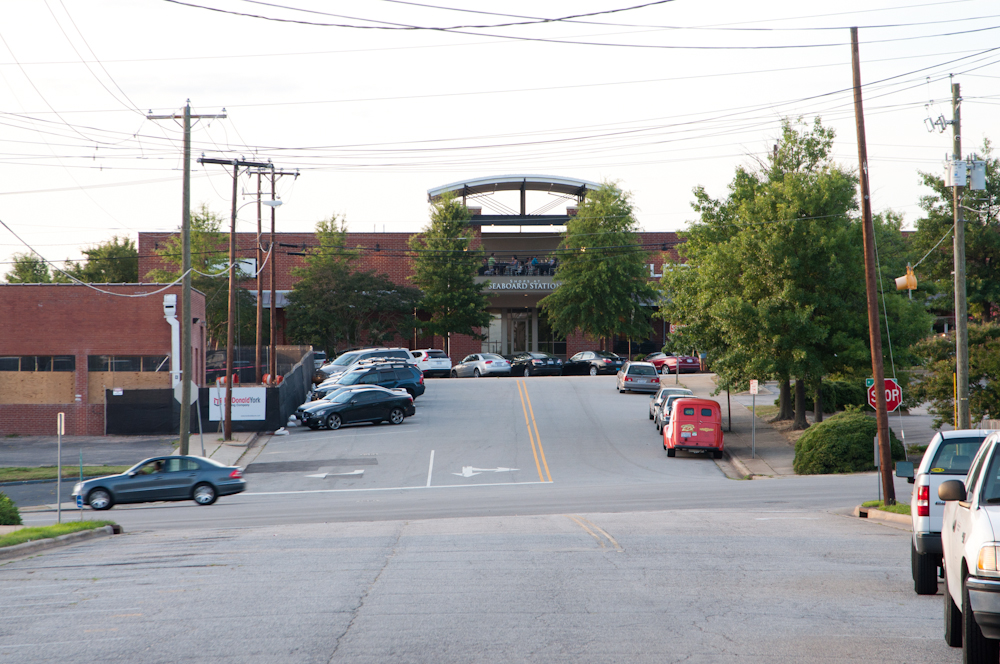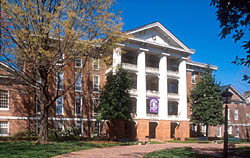Business at Bob King’s Ace Hardware store at Seaboard Station has grown each year as new bars, restaurants and retailers opened in once-vacant warehouses.
Now, the former train depot-turned-retail center on downtown’s northern edge bustles with activity day and night, and King is one year into a new decade-long lease. He’s invested nearly $1 million into the store, his bet on a strong financial future.
But worries have cropped up in recent months. First, when the center’s owner filed bankruptcy. Then, on April 15, when neighboring William Peace University put its hat in the ring to buy the center and rumors about its possible closure spread. And third, when the college withdrew a request for $9 million in tax-exempt city bonds last week, only after Raleigh City Council required that it reveal plans for Seaboard at a public hearing.
“I can’t even imagine how they’d run a retail center,” King said. “I was here at the beginning when we were struggling, and now we are thriving. It would end that.”

Seaboard Station, as seen from across Peace Street. Photo by Leo Suarez.
University officials have assured City Council that Seaboard would remain open if the college wins the bid for the property. They explained the sudden bond request withdrawal as a matter of timing, not a means of dodging the public.
Peace president Debra Townsley reiterated those promises to neighborhood leaders at a Tuesday afternoon meeting.
“Their intent is to keep it income-producing,” reported Kim Gazella, co-chair of the Mordecai Citizens Advisory Council.
Townsley told the group of a dozen or so community leaders that Peace would eventually develop the land behind the center into student housing or a parking complex to accommodate growth plans.
The college’s plan follows the lead of many universities around the country in creating a “campus beyond gates,” Townsley told the group (according to Gazella).
Colleges build or own retail centers just beyond the bounds of the campus to serve as an amenity to students, faculty and staff. They often develop student housing, classrooms or offices on available land around it.
A representative for the college worte in an e-mail to that Record that a non-disclosure agreement prevents the college from sharing any specific details of the plans. That apparently includes the tenants. King hasn’t yet been contacted by the college.
In any case, King doesn’t trust Peace. And neighborhood leaders would rather Seaboard have a more traditional shopping center owner, too.

Part of William Peace University. Photo by the National Park Service.
“We think this would be very bad, not only for us as a neighborhood, but for the city,” Gazella said. “If Peace buys it, even if they keep some retail, what they use for education becomes tax-exempt.
“We want to see that area continue to grow as a very vibrant shopping area, a place for people to live and work that’s near downtown. We’d hope someone would buy it and continue on the path it’s been on.”
The entire situation hasn’t impressed City Council.
The university should have been more forthcoming with the neighbors and tenants, said Councilwoman Mary-Ann Baldwin, who lives near Seaboard. And it shouldn’t have let rumors perpetuate.
“I think in the absence of good information, people think the worst,” she said. “And what Peace hasn’t done is taken the opportunity to provide that information and reach out to the community.”